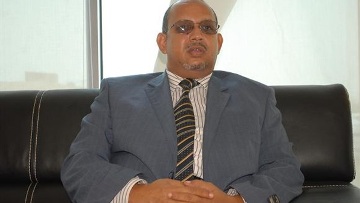Sudan appoints new special prosecutor for Darfur crimes
August 23, 2015 (KHARTOUM) – The Sudanese government has appointed a new special prosecutor for Darfur crimes to succeed Yasir Ahmed Mohamed who was redeployed elsewhere.

In press statements from El–Fasher, Taifoor underscored the seriousness of the government and the Ministry of Justice in establishing the rule of law and combating impunity.
Taifoor said he will seek to achieve this goal relentlessly so that Darfur would enjoy security and social peace.
He was received with an official welcome from state government officials namely the governor Abdul-Wahid Youssef and members of the committee for state security.
Khartoum created this position in 2003 to prove to the international community its seriousness in trying the perpetrators of crimes allegedly committed in the course of the Sudanese government’s war against armed rebels in western Sudan.
However, the previous three prosecutors who occupied the position failed to bring charges against any individual despite credible reports of atrocities committed during the zenith of the conflict in 2003 and 2004.
Abdel-Dayem Zumrawi, the second special prosecutor who also held the post of justice ministry undersecretary, has reportedly complained about the decision to grant judicial immunity to some of the individuals investigated.
In January 2012 and in accordance with the Doha Document for Peace in Darfur (DDPD) signed in 2011 between the government and a group of Darfur movements gathered under the umbrella of the Liberation and Justice Movement (LJM), the government issued a decree establishing a special tribunal for Darfur war crimes.
SUNA quoted previous special prosecutor Yasir Ahmed Mohamed as saying that justice in Darfur made good progress and that many cases were successfully adjudicated stressing that the issue of immunity did not hinder justice.
The special prosecutor is empowered to investigate violations of international humanitarian law and crimes provided for in the Sudanese Terrorism Act of 2001, along with any other crimes falling under any penal code per instructions from the minister of Justice.
Sudan’s failure to go after those responsible for committing Darfur crimes led the UN Security Council (UNSC) in March 2005 to refer the situation in Darfur to the International Criminal Court (ICC) after a UN commission of inquiry concluded that the Sudanese judiciary was unwilling or unable to carry out credible prosecutions in the war-ravaged region.
However, the Sudanese government refuses to cooperate with the ICC which has indicted president Bashir, his defense minister Abdel-Rahim Mohamed Hussein, North Kordofan governor Ahmed Haroun, as well as militia leader Ali Kushayb.
(ST)
